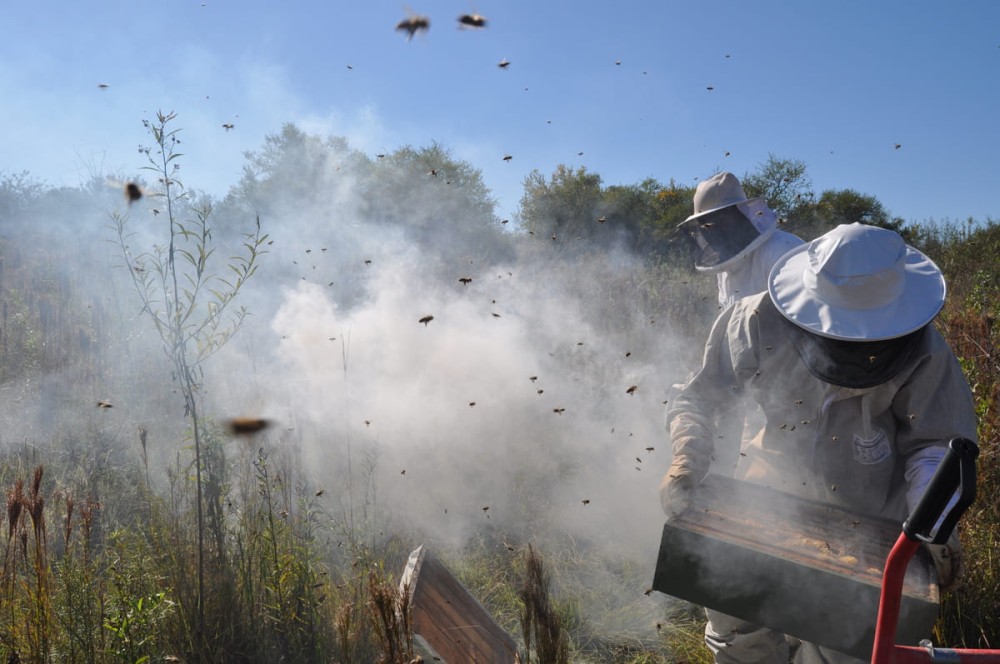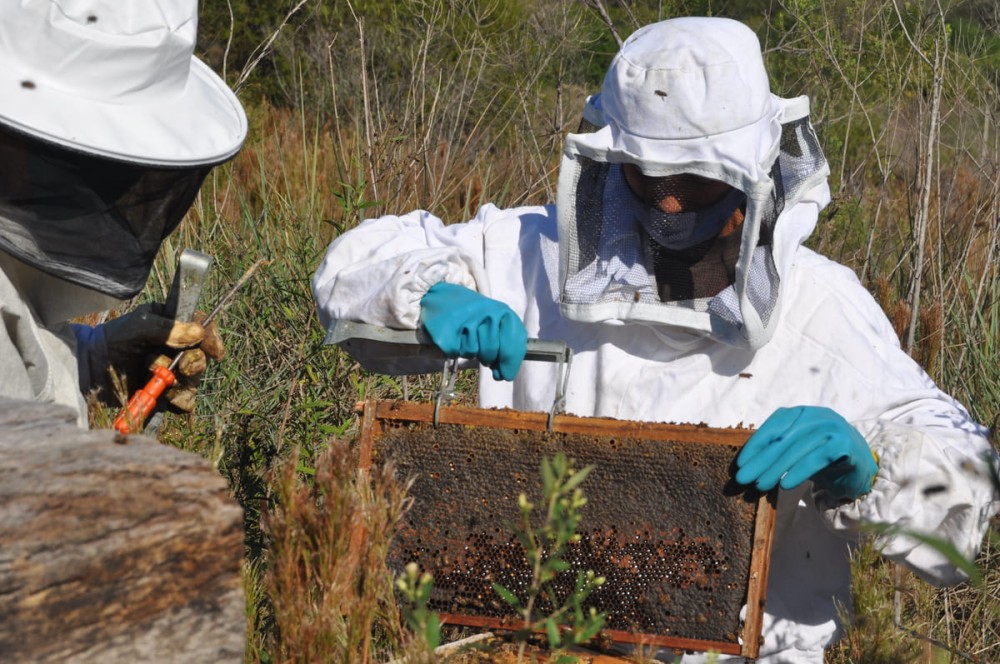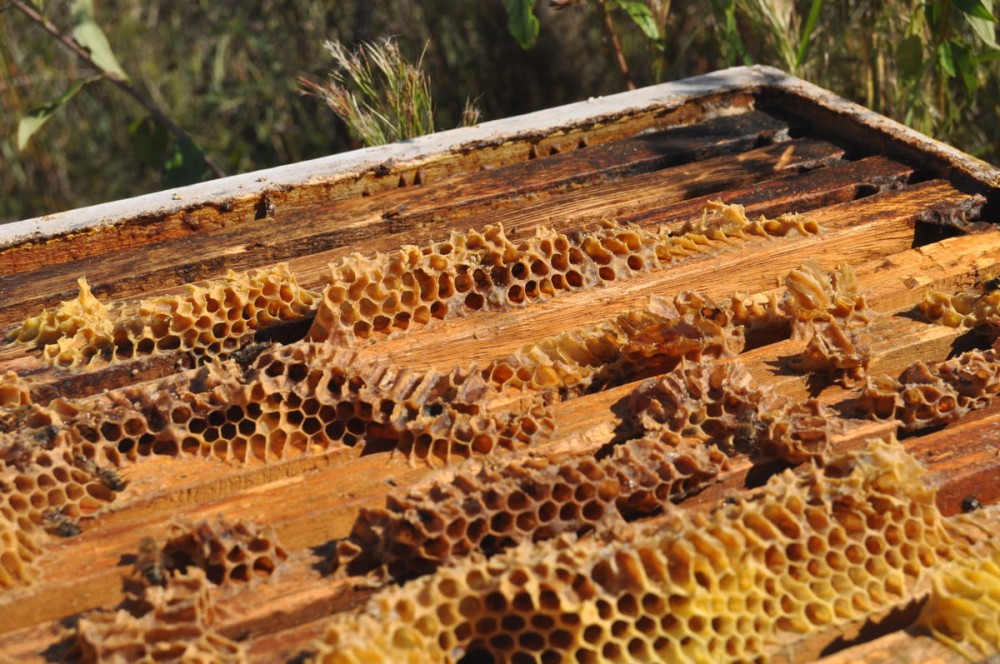Bees (Apis Mellifera) play an essential role in the ecosystem because they are one of the main plant-pollinating insects, and in the Light-Community Fraternity of Aurora, affiliated with the Fraternity – International Humanitarian Federation (FIHF), spaces were created so they could form their own community in a peaceful and harmonious habitat. Also, because they are one of the most perfect insects in relation to communal life, they present the Light-Community with that kind of example of organization and group life.
Bee colonies are shrinking on the planet, not only because global warming influences their behavior, but for various causes such as pesticides, monocultures, pests, parasites, illnesses, and loss of habitat leading to loss of food sources. This has alarmed the world and has caused people to become more and more aware of how important it is to take care of these insects as pollinizing agents of plants with flowers, since their dropping numbers represents a risk to agriculture and plant diversity.
The Light-Community created spaces for conserving this species that provides so many benefits for plant life. There have been 21 wood beehives set up in two different locations of the Redemption 1 area, which can hold between 50,000 to 80,000 bees in each. There are also some in the Redemption 2 area, and it is expected that more hives will be placed in all the areas.
Bees build their own hives, but with placing these wooden structures already set up for their kind of communal life, this helps them generate a space so they can live in harmony in a peaceful environment protected from weather conditions.
They are also provided with the necessary care so they can harmoniously develop their tasks, although thanks to the high degree of organization and cleanliness they have as a colony, they themselves can create conditions favorable to their communal work. Sister Paula, who was in charge of the task, tells us:
“The main thing is to pay attention to what they need, such as if they need more space in the hive or to add another beehive. Any cleaning, in general, is done on the external parts, keeping the space cleared, since inside the hives, they themselves maintain everything organized and cared for.”
The human being has exploited this species due to the delicate products that only they know how to make. Honey, propolis, wax and royal jelly are used in various sectors of industry, and have caused this species to be exploited and manipulated to benefit human beings.
In the Light-Community, the products remain in the hive, but as they produce more than they need, sometimes the honey excess they generate is extracted for community consumption during the winter season.
“At some point, the bees know they are not exploited here for the products they generate. Here they are respected and have a space for living peacefully, without having to toil,” comments Sister Paula.
Bees have marked patterns of group life and principles of organization as well as order, geometry and hierarchical level, which are impulses that they radiate to human beings.
“During the care we do not seek to extract honey as a goal, but we seek to make contact with that way of life that radiates community archetypes and encourages us to live them,” says Sister Paula.
If we study their behavior, we can learn important things. They faithfully unite to manifest a purpose, and each one has its specific task, which is done without delay. They have a strong hierarchical pattern, in which the queen bee is the one most respected and cared for by the worker bees, while the drones have the task of fertilizing unfertilized queen bees.
The worker bees not only take care of the queen bee, but also carry out most of the tasks, such as the making of the products, the cleaning, the search for food, feeding the brood and defending the hive, coming together at the least sign of a threat.
The perfect geometric forms they generate in the hives and the caregiving they also carry out teach us the essential behavior for group life, such as maintaining harmony in the spaces, altruistic service and union in purpose.
The fact they are diminishing in numbers on the planet demonstrates that they are beings sensitive to what is happening in the world, and they need to be protected and assisted so they can continue to carry out this important role in biodiversity and in human life. The Light-Community is looking to expand these spaces in the areas so the bees can continue to develop their small but important tasks, which add so much to the balance of the ecosystem.













